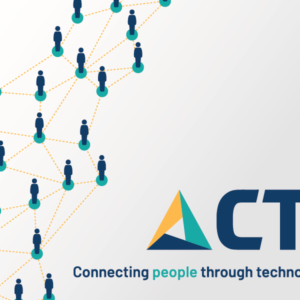The Loop Lab’s Founder and Executive Director Chris Hope outlines his vision to create an intersection between communities of color, the tech economy, and workforce development
Over the next few months, I will be sharing my experience and thoughts regarding equity with you, but first would like to share a little about my background. I am originally from Atlanta, Georgia, and moved to the greater Boston area for school. My career focuses have largely been in the sciences and in advancing equity. I received my Masters from Harvard Divinity School, and I currently hold a CTS in the pro AV industry. I am the Founder and Executive Director of The Loop Lab.
While at Harvard Divinity School I interned as a minister at my church, Pentecostal Tabernacle in Cambridge, Massachusetts. Part of my ministry and internship there included helping with AV and organizing community events. The church is located in the center of the most impoverished neighborhood in the city. In my role, I mentored several young adults from the neighborhood and would invite them to the studio to record their music and to learn more about AV. I identified an opportunity to help these youths by helping them connect their passion in AV and music to meaningful and prosperous careers. Soon, I began to talk with city officials about funding a formal program where students could receive free workforce development and training into the industry.
My vision was to create an intersection between communities of color, the tech economy, and workforce development. This vision is being realized through The Loop Lab. The Loop Lab was created to create more viable workforce pipelines into the Pro AV industry, and to stimulate more diversity in the industry by empowering womxn and people of color to enter careers in the AV industry through job training and job placement. Implicit bias and discrimination exists in almost every aspect of American society, and in every industry, but is especially obvious in the AV industry.
A glance at a companywide photo at a typical AV company, would yield images of mostly white men over the age of 40. People of color are grossly underrepresented in the tech industry and often left out of work opportunities. For example, the immigrant labor workforce makes up 39.8% of the MA workforce, but are overwhelmingly underemployed in building and maintenance jobs.
Beyond lack of diversity in the workforce, underrepresented people who do work in the industry face additional challenges, such as lower promotion rates, lower pay rates, higher instances of building security following them around during installation or work visits, dealing with higher levels of scrutiny on field job due to a perception of stereotypical laziness.
In the past year, AV organizations such as AVIXA, have expressed a genuine desire to address disparity and biases in the industry. AV companies are starting to learn that increasing diversity in their industry will enrich the AV experience, allow for diverse perspectives, and serve a broader population. In addition to The Loop Lab, I have created a company called Equity Intelligence, formed to help companies and organizations like AVIXA recognize, control, and handle systemic, structural and interpersonal unfairness judiciously and empathetically, identify specific growth areas, form action steps, implement trainings and initiatives aimed at advancing equity and inclusion.
In 2020 it is clear that we have a long road ahead of us. But I believe that through our collective will power, we can usher in a new horizon of equity and progress through the dark and stormy clouds of ignorance.
For more information on The Loop Lab, visit www.TheLoopLab.org.
“Equality is treating everyone the same. But equity is taking differences into account, so everyone has a chance to succeed.” ― Jodi Picoult, Small Great Things








